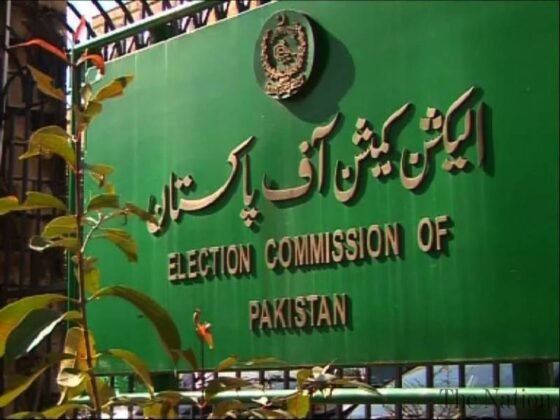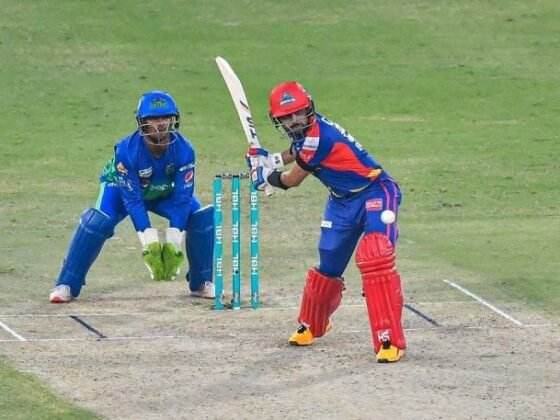By Diane Bolsinger
Finest Protection workplace of Pakistani affairs
With all of the press on Pakistan’s Inter-Providers Intelligence Directorate’s (ISI) actions over time, our cabinets needs to be bulging with books dissecting the service. Loads of works do talk about ISI hyperlinks with terrorist teams, liaison with the CIA, and impression on home stability within the context of bigger tales — suppose Steve Coll’s Ghost Wars, Ahmed Rashid’s Descent into Chaos, or Hussain Haqqani’s Pakistan: Between Mosque and Army.
Surprisingly, till not too long ago, no critical publication has centered completely on the ISI as an intelligence service. Two works — one launched final July and the opposite newly-translated into English — handle this hole. Neither solves the large questions, comparable to who knew Bin Laden was in Abbottabad, or who killed Prime Minister Benazir Bhutto or President Muhammad Zia-ul-Haq, however they do provide new views on ISI’s impression on Pakistani democracy and regional stability.
Former DIA Senior Intelligence Analyst Owen L. Sirrs’ Pakistan’s Inter-services Intelligence Directorate: Covert Motion and Inside Operations is the strongest of the pair. Sirrs traces ISI’s “existential struggle for nationwide survival” to the trauma of Partition, highlighting what number of of Pakistan’s early army and intelligence leaders survived the damaging trek to the brand new nation. The ISI, a “start-up operation born out of a collapsed empire,” leveraged its ties with the CIA to construct the capabilities it used to assist covert motion operations in neighboring India and Afghanistan. Sirrs’ dialogue of the transformational position of the Afghan Program — from the early assist to Islamists in 1973 by means of the 1991 creation of the Taliban — is robust, as are his descriptions of how Islamization undermined ISI inside self-discipline.
Sirrs works to “puncturing the parable of ISI as a ‘rogue’ company working past the data and consent of nationwide authorities.” He makes a convincing case that ISI operates underneath agency GCHQ (Basic Headquarters) management. I believe, although, that Sirrs overestimates civilian leaders’ entry and affect over ISI operations. Benazir Bhutto, Nawaz Sharif, and others tried to harness ISI in opposition to their enemies, however these makes an attempt to control the service fall far in need of dependable management. With so little transparency into Pakistan’s civil-military relations, we’re pressured right into a type of Kremlinology, weighing competing claims by gamers with each motive to spin.
Sirrs’ argument that ISI poses a “elementary” menace to Pakistani democracy just isn’t new, however he does break some new floor. He goes past present accounts of ISI’s position manipulating elections, silencing critics, and supporting army coups to argue the service’s weaknesses as an intelligence service are also destabilizing. ISI can and does conduct covert operations, at dwelling and overseas. What ISI doesn’t do nicely is carry out the essential capabilities of an intelligence service: assortment, evaluation, and counterintelligence. Good intelligence is prime to avoiding the miscalculations that spark struggle. ISI has repeatedly failed the check, from its evaluation in 1970 that the Bangladeshi secession motion may very well be preempted with slightly “butchery,” to the 2008 proxy assault in Mumbai. Ideology, wishful pondering, and a deep suspicion of civilian dedication to Pakistan’s well-being dominate intelligence assessments, guaranteeing future cycles of disaster.
The opposite e-book, Hein G. Kiessling’s Religion, Unity, Self-discipline: The ISI of Pakistan, may have been extraordinary. Kiessling lived in Pakistan for practically twenty years and had direct entry to most former ISI Director Generals. He covers the identical historical past as Sirrs (additionally dismissing allegations that the “strictly led and managed” service conducts rogue operations). In distinction to Sirrs’ chronological march by means of ISI’s improvement, Kiessling’s narrative veers between ISI’s group, historic controversies, and character clashes amongst army and civilian leaders. His on-the-record interviews of former ISI Administrators, together with the reclusive Basic Mahmood Ahmed, spotlight service leaders’ persevering with suspicions over civilian leaders’ competence and goodwill.
Sadly, Kiessling undermines his account with unsourced judgments and a low threshold for conspiracy theories. He dismisses accounts of ISI kidnappings and assassinations as political propaganda, proposes an unusually low estimate of ISI personnel energy, and asserts that “all fingers level in the direction of the Individuals” within the unsolved thriller of the 1988 aircraft crash that killed Pakistani President Zia-ul-Haq and U.S. Ambassador Arnold Raphel. Kiessling’s acknowledged premise is that ISI is the unjustified goal of “frenzied and sometimes ill-informed dialogue” and conspiracy idea, whereas the rival Indian Analysis and Evaluation Wing (RAW) is “largely let off the hook.”
In making an attempt to deal with this perceived imbalance, Kiessling permits his sources’ whoppers to go unchallenged. Thus, he republishes an ISI assertion that the well-documented civilian disappearances in Baluchistan are both (a) nonexistent; (b) terrorists KIA, their our bodies hidden by partners-in-crime; or (c) “mentally retarded people, who depart their houses and transfer to different components of the nation.” Elsewhere he cites claims that 9/11 was “an inside job.” The result’s an unfocused narrative with some new insights, however one I might hesitate to contemplate dependable.
Collectively, these two books spotlight the necessity to higher perceive the position of intelligence providers in creating democracies comparable to Pakistan. Many ISI operations are deeply problematic, from home assaults on critics to assist for terrorist proxies overseas. All the identical, no nation can thrive within the fashionable world with out some type of dependable intelligence, if just for warning. The street to cleansing up Pakistani politics might, as Sirrs claims, run by means of GCHQ, however the very best likelihood for averting future Indo-Pakistani Battle lies within the creation of a reputable, skilled, and depoliticized intelligence service underneath useful civilian management. As we speak’s ISI is way beneath that customary, however elevated public understanding of its operations offers a small step in the best course.
Diana Bolsinger is a doctoral pupil on the LBJ Faculty of Public Coverage on the College of Texas, Austin. She focuses on U.S. nationwide safety technique and is a Graduate Fellow on the Clements Middle for Nationwide Safety.
Photograph credit score: Wikimedia Commons










